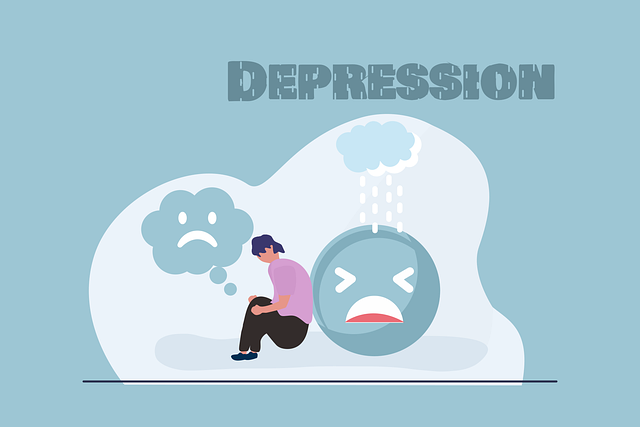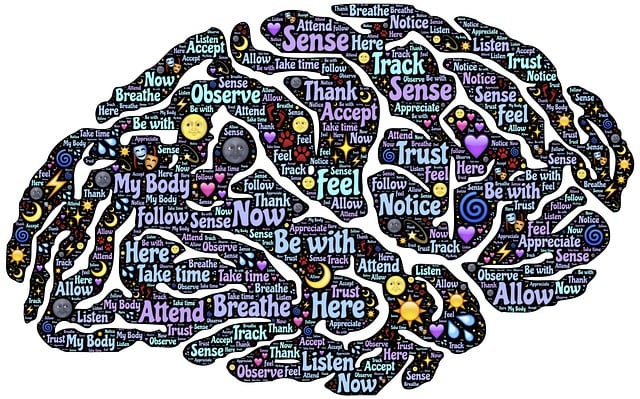Public awareness campaigns, such as Northglenn Cognitive Processing Therapy (NCPT), are powerful tools for educating communities on vital issues like mental health. Through strategic communication channels and community events, these campaigns raise knowledge, promote positive behavioral changes, and inspire collective action. NCPT combines cognitive processing techniques with social skills training, offering comprehensive strategies for individuals and the wider community, thereby fostering open dialogue, enhancing mental health awareness, and building resilience. A successful campaign relies on a clear, compelling message, accessible content like infographics and videos, and risk assessment for professionals to measure impact and ensure continuous improvement.
Public awareness campaigns play a pivotal role in shaping societal attitudes and behaviors, with the potential to drive meaningful change. This article delves into the development of impactful campaigns, highlighting key strategies and best practices. We explore the significance of initiatives like Northglenn Cognitive Processing Therapy, which fosters community engagement through innovative approaches. By understanding campaign dynamics, crafting compelling content, and measuring success, organizations can create movements that resonate and result in lasting positive outcomes.
- Understanding Public Awareness Campaigns: Their Role and Impact
- Northglenn Cognitive Processing Therapy: A Unique Approach to Community Engagement
- Key Components of Effective Awareness Campaign Development
- Strategies for Creating Engaging Content and Materials
- Measuring Success: Evaluating the Effectiveness of Public Awareness Campaigns
Understanding Public Awareness Campaigns: Their Role and Impact

Public awareness campaigns play a pivotal role in educating and engaging communities on various issues, from health to environmental concerns. These initiatives are designed to facilitate understanding, encourage positive behavior changes, and foster collective action. By utilizing diverse communication channels, such as social media, local events, and even therapy sessions like Northglenn Cognitive Processing Therapy, these campaigns reach a wide audience, impacting their knowledge, attitudes, and behaviors.
The impact of successful awareness campaigns extends beyond immediate comprehension. They contribute to long-term self-esteem improvement and coping skills development, empowering individuals to navigate challenges more effectively. For instance, mental wellness podcasts can be part of such initiatives, offering valuable insights and practical strategies for maintaining emotional well-being. These efforts collectively drive social change and promote a healthier, more resilient society, making them essential components of modern community engagement.
Northglenn Cognitive Processing Therapy: A Unique Approach to Community Engagement

In Northglenn, a unique community engagement initiative stands out—the Northglenn Cognitive Processing Therapy (NCPT). This innovative program takes a holistic approach to mental health and well-being, targeting not just individuals but the entire community. NCPT offers more than traditional therapy; it’s a comprehensive strategy that combines cognitive processing techniques with social skills training. By empowering residents with inner strength development tools, this therapy fosters a sense of resilience and prepares them for effective crisis intervention guidance.
The program’s success lies in its ability to bridge the gap between professional support and community integration. Through interactive sessions, NCPT encourages open dialogue and peer learning, creating a supportive environment where individuals can develop coping mechanisms tailored to their specific needs. This community-centric therapy model not only enhances mental health awareness but also strengthens social bonds, ultimately fostering a more robust and resilient Northglenn.
Key Components of Effective Awareness Campaign Development

The development of an effective public awareness campaign requires a strategic approach that resonates with the target audience. Key components include identifying a clear and compelling message that speaks to the heart of the issue, such as mental health challenges. For instance, Northglenn Cognitive Processing Therapy offers valuable tools for navigating emotional struggles, emphasizing the importance of early intervention and self-care practices. By integrating these practices into campaign messaging, communities can foster a culture of support and resilience.
Emotional intelligence plays a pivotal role in campaign success. Recognizing and addressing the emotional needs of individuals affected by trauma, through platforms like social media or community events, creates a safe space for open dialogue. This, coupled with accessible information on available Trauma Support Services, empowers people to take charge of their mental health and embrace self-care practices that enhance overall well-being.
Strategies for Creating Engaging Content and Materials

Creating engaging content is vital for successful public awareness campaigns, especially when addressing mental health topics like Burnout Prevention and Cultural Sensitivity in Mental Healthcare Practice. Northglenn Cognitive Processing Therapy (NCPT) offers valuable insights into effective strategies. Firstly, personalization resonates with audiences; sharing relatable stories and experiences can break down barriers and increase identification. Incorporating real-life examples of individuals navigating mental health challenges, and highlighting the transformative power of therapy, can foster a sense of connection and inspire hope.
Visuals play a significant role in capturing attention and conveying complex ideas. Infographics, videos, and illustrations can simplify intricate concepts related to self-esteem improvement and burnout prevention. Using vibrant imagery and compelling narratives, NCPT materials can engage diverse audiences, ensuring that critical messages are accessible and memorable. Engaging content not only informs but also inspires action, encouraging individuals to prioritize their mental health and seek support when needed.
Measuring Success: Evaluating the Effectiveness of Public Awareness Campaigns

Measuring success is a crucial aspect of evaluating the effectiveness of public awareness campaigns, such as those promoting Northglenn Cognitive Processing Therapy (NCPT). The primary goal is to assess how well the campaign achieves its intended objectives and impacts the target audience. This involves designing robust evaluation strategies that go beyond simple reach or attendance figures. Metrics should include self-reported changes in knowledge, attitudes, and behaviors related to mental health, particularly focusing on NCPT principles like mindfulness meditation for stress reduction.
To ensure comprehensive assessment, risk assessment for mental health professionals is essential, considering the sensitive nature of the topic. By combining quantitative data (e.g., survey responses) with qualitative insights (e.g., participant testimonials), organizers can gain a holistic understanding of campaign success. This enables continuous improvement and ensures that initiatives like NCPT therapy reach their full potential in fostering self-esteem improvement and promoting mental well-being within the community.
Public awareness campaigns, as demonstrated by innovative initiatives like Northglenn Cognitive Processing Therapy, play a pivotal role in educating communities and driving positive change. By focusing on key components such as engaging content, strategic materials, and robust evaluation methods, these campaigns can effectively address societal issues. Understanding the impact of well-designed awareness efforts is essential for fostering informed communities and creating lasting solutions, ultimately enhancing our collective well-being.














